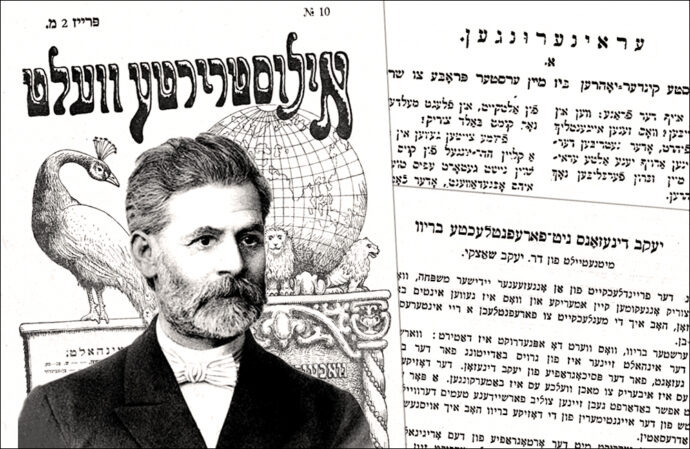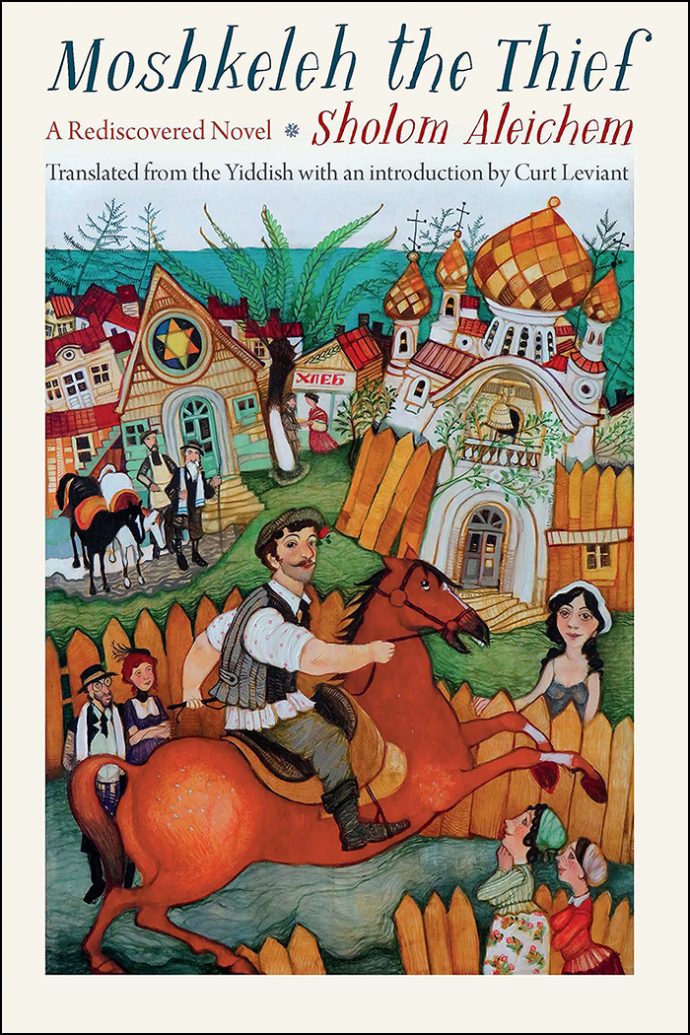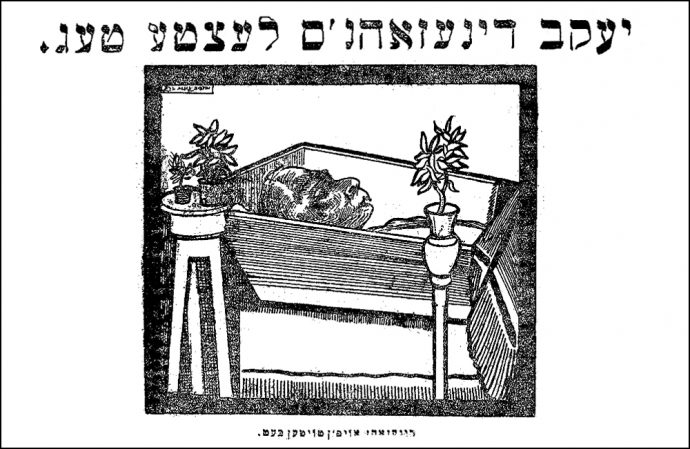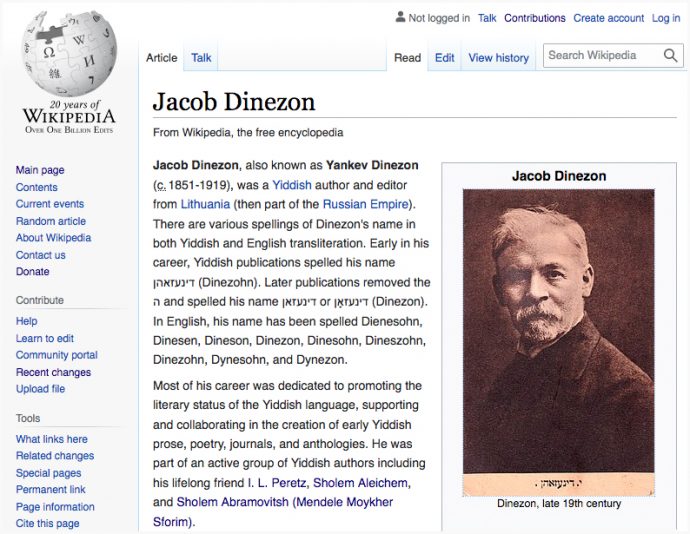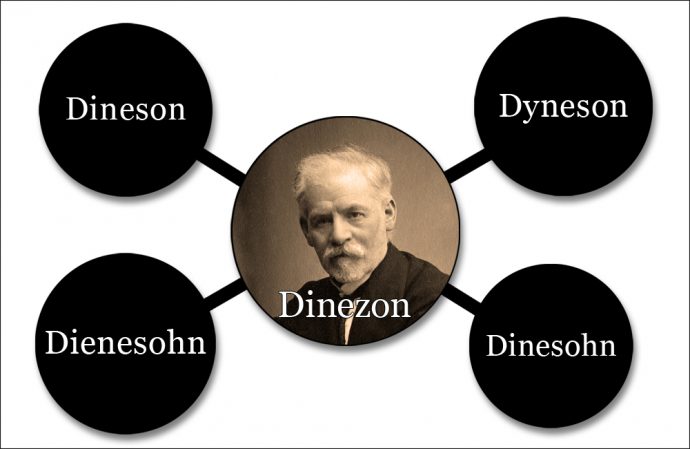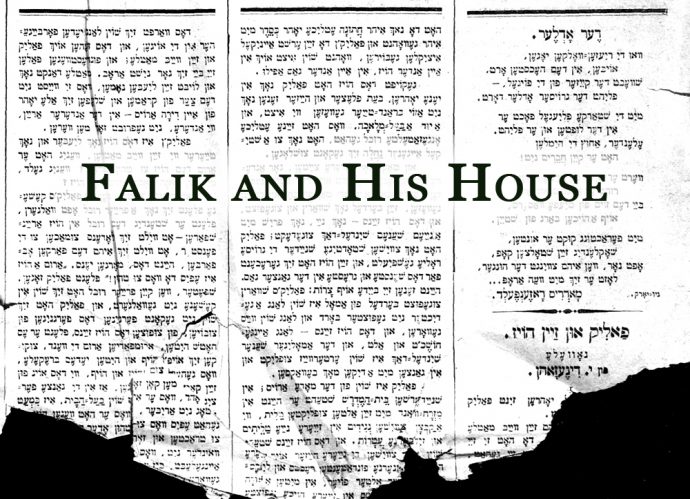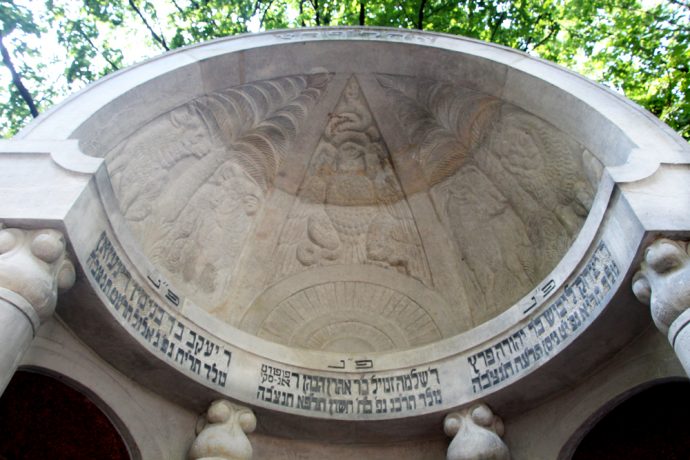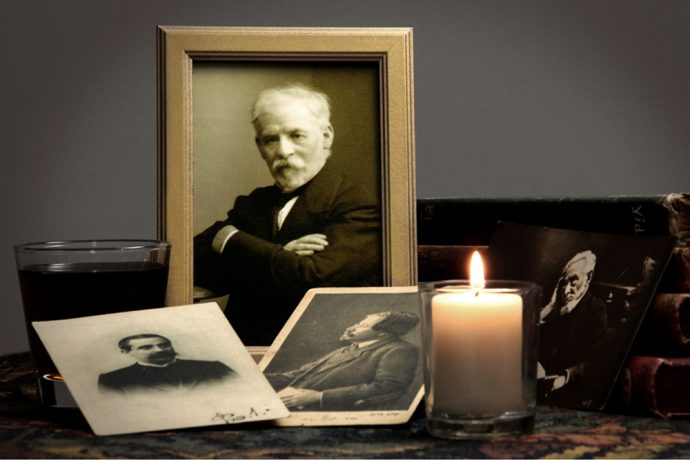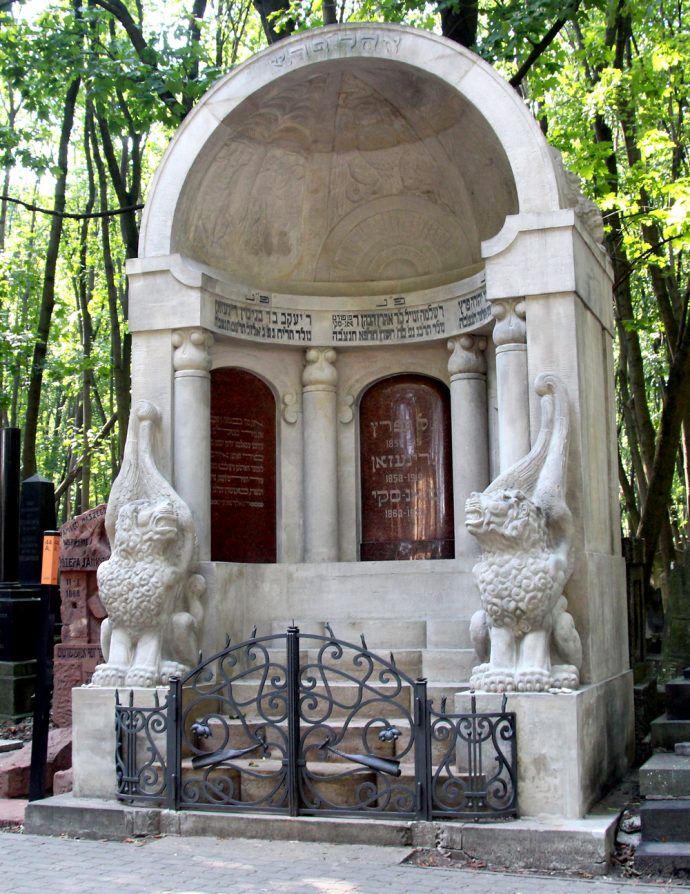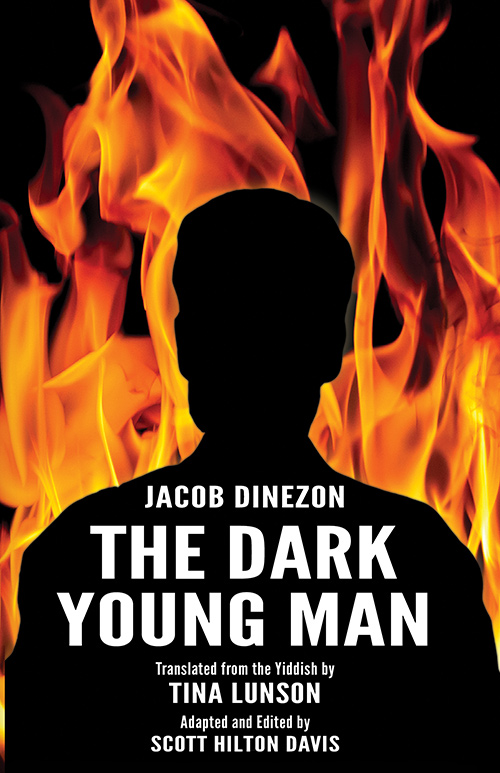Dinezon’s 103rd Yortsayt
Today, August 30, 2022 (Elul 3, 5782 on the Hebrew calendar), marks the 103rd anniversary of the Yiddish author Jacob Dinezon’s death. In a year when war raged once again in eastern Europe, this time with an invasion of Ukraine by Putin’s Russian army, and as the Covid pandemic and political turmoil plagued America, we resolved to continue our work in attempting to restore Jacob Dinezon’s literary legacy. Much of the effort was accomplished by two wonderful Yiddish translators, Mindy Liberman and Janie Respitz, who translated several Dinezon-related letters, articles, essays, and newspaper obituaries. All of their work had now . . . (Read More)
